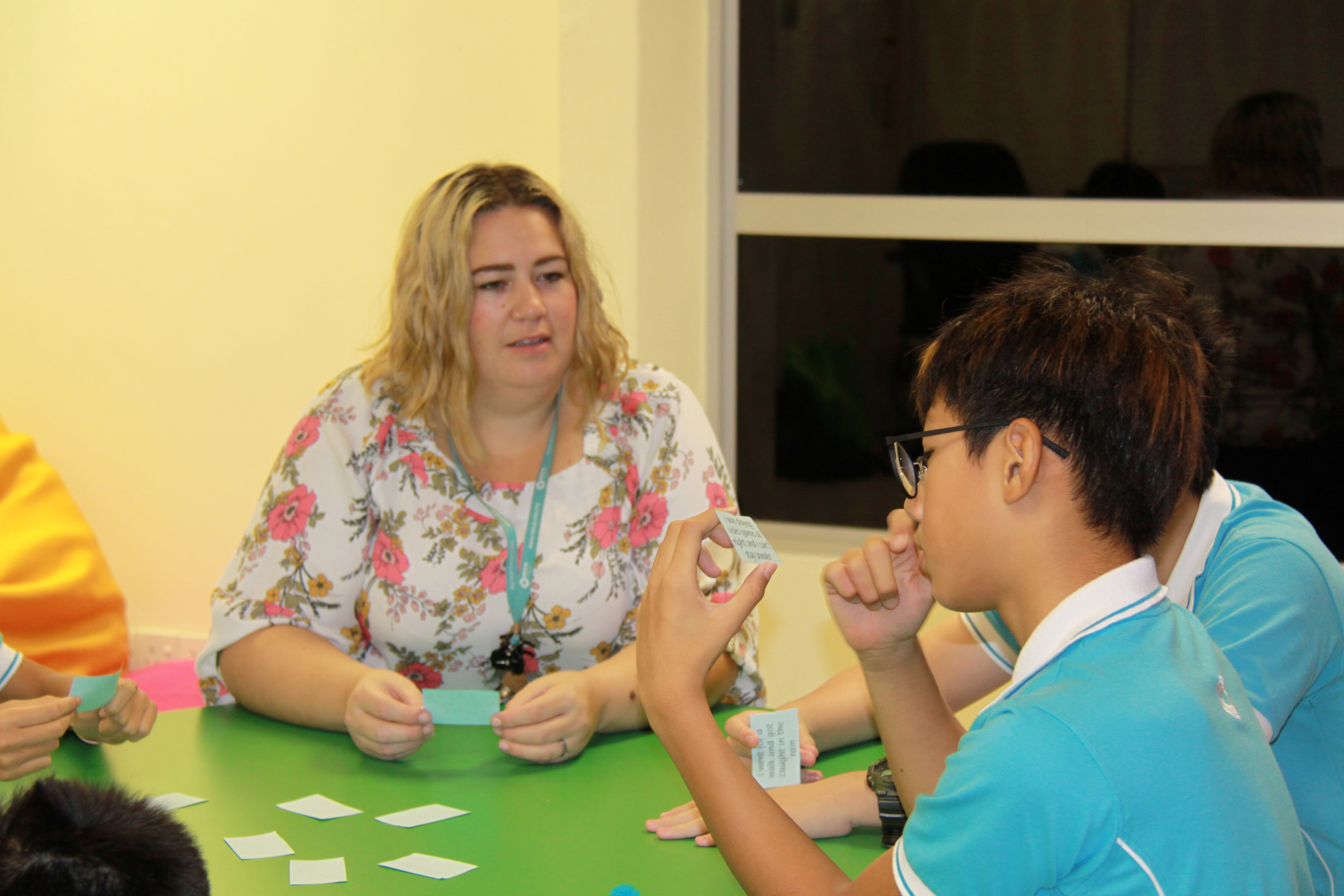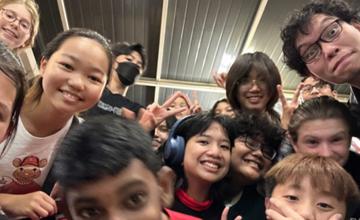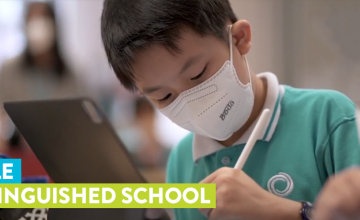Let’s Talk about Speech Therapy

Oct 18, 2018
Making small talk with people may be an easy task, but not for children with speech, language and communication needs (SLCN). Sometimes, their speech is difficult to understand. Other times, they are slow or last to respond in social interactions. Despite the increasing number of children dealing with speech-related problems, it remains as a hidden disability for many people.
In recent years, speech and language therapy (SaLT) is shedding light and bringing solutions to this hidden disability. In Malaysia, there are over 300 speech therapists who are making a change. One of them is Ms Samantha Foy, a speech and language therapist at Nexus.
Seeing the change that SaLT can have to a person’s life fascinated Ms Foy. She described the therapy as a form of treatment, support and care for children and adults who have difficulties with communication, or with eating, drinking and swallowing. “During my training, I worked with adults and children in hospitals, schools, clinics, day centres and at home.”
In the eyes of a Nexus learner, Ms Foy is a speech and language therapist (SLT). She is the go-to person for speech and language assessment before working out the areas of communication that the learners need support with.
A child with SLCN is often faced with communication difficulties including speech sounds, voice, stammering, understanding language and social interaction. While some SLCN causes are unknown, others were part of a condition (cerebral palsy or autism) or physical cause (cleft palate). “Some SLCN are short-term and can be addressed through effective early intervention. Others are more permanent and will remain with a person throughout their childhood and adult life,” she explains.
At Nexus, Ms Foy is a member of the Alternate Pathway team, which caters to learners with learning challenges, social and emotional needs. Recognising the importance of SaLT, Nexus offers in-school speech and language therapy service. “The therapist works with Primary and Secondary age learners. Depending on the learner’s needs, we can offer advice, assessment, training and group or one-on-one therapy,” she says.
At home, parents or other family members can also identify the early signs of SLCN. When a child is chatting incomprehensibly or not speaking, seek help from a trained professional as early as possible. “At Nexus, parents can speak to their child’s class teacher or inclusion teacher. Then, the teacher will refer to in-school SaLT for further guidance.”
On a regular day, Ms Foy meets seven learners with different needs, goals and therapy approaches. “I am lucky to work in a forward thinking school such as Nexus, which places great importance on inclusivity and nurtures all learners,” she praises. “Other schools do promote themselves as having an inclusive admission policy. However, what sets Nexus apart is that we offer the appropriate provision from additional specialists to support our learners.”
Since speech, language and communication skills are important, SaLT can play an instrumental role in schools. “Being able to share thoughts, feelings and ideas is important from Early Years to IB,” Ms Foy discusses. “Having SaLT directly in school means that the therapist and classroom staff can work closely together to support the learner across all curriculum areas. It is the best way to support the learners.”

In recent years, speech and language therapy (SaLT) is shedding light and bringing solutions to this hidden disability. In Malaysia, there are over 300 speech therapists who are making a change. One of them is Ms Samantha Foy, a speech and language therapist at Nexus.
Seeing the change that SaLT can have to a person’s life fascinated Ms Foy. She described the therapy as a form of treatment, support and care for children and adults who have difficulties with communication, or with eating, drinking and swallowing. “During my training, I worked with adults and children in hospitals, schools, clinics, day centres and at home.”
In the eyes of a Nexus learner, Ms Foy is a speech and language therapist (SLT). She is the go-to person for speech and language assessment before working out the areas of communication that the learners need support with.
A child with SLCN is often faced with communication difficulties including speech sounds, voice, stammering, understanding language and social interaction. While some SLCN causes are unknown, others were part of a condition (cerebral palsy or autism) or physical cause (cleft palate). “Some SLCN are short-term and can be addressed through effective early intervention. Others are more permanent and will remain with a person throughout their childhood and adult life,” she explains.
At Nexus, Ms Foy is a member of the Alternate Pathway team, which caters to learners with learning challenges, social and emotional needs. Recognising the importance of SaLT, Nexus offers in-school speech and language therapy service. “The therapist works with Primary and Secondary age learners. Depending on the learner’s needs, we can offer advice, assessment, training and group or one-on-one therapy,” she says.
At home, parents or other family members can also identify the early signs of SLCN. When a child is chatting incomprehensibly or not speaking, seek help from a trained professional as early as possible. “At Nexus, parents can speak to their child’s class teacher or inclusion teacher. Then, the teacher will refer to in-school SaLT for further guidance.”
On a regular day, Ms Foy meets seven learners with different needs, goals and therapy approaches. “I am lucky to work in a forward thinking school such as Nexus, which places great importance on inclusivity and nurtures all learners,” she praises. “Other schools do promote themselves as having an inclusive admission policy. However, what sets Nexus apart is that we offer the appropriate provision from additional specialists to support our learners.”
Since speech, language and communication skills are important, SaLT can play an instrumental role in schools. “Being able to share thoughts, feelings and ideas is important from Early Years to IB,” Ms Foy discusses. “Having SaLT directly in school means that the therapist and classroom staff can work closely together to support the learner across all curriculum areas. It is the best way to support the learners.”



